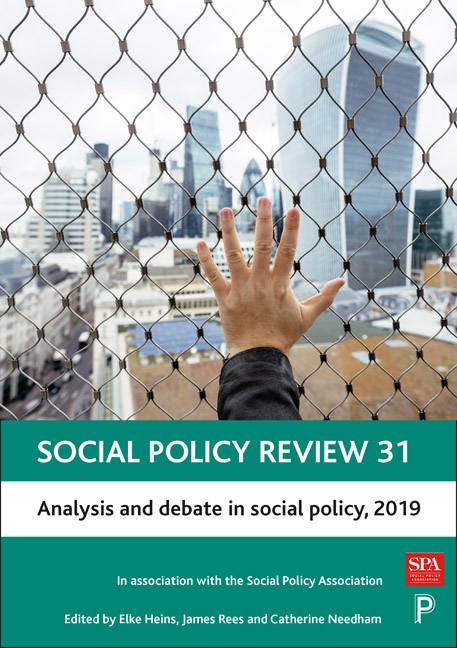6 - From the Windrush Generation to the ‘Air Jamaica generation’: local authority support for families with no recourse to public funds
Published online by Cambridge University Press: 30 April 2022
Summary
Introduction
Over the past year, immigration has been a continued focus of policy debates in the Global North, with governments in Hungary and Italy elected on openly anti-immigration and ‘welfare chauvinist’ platforms. On the other side of the Atlantic, the US federal government's family separations policy has also been a source of fierce dispute. In the UK, the potential implications of Brexit for European Union (EU) migrants in the UK and the treatment of the children of the ‘Windrush Generation’ under the hostile (or ‘compliant’) environment have caused particular controversy and precipitated the resignation of the Home Secretary.
However, there has been less discussion of the rights of the next generation of migrants who came to the UK from the Commonwealth after the Immigration Act 1971. Often from the same Caribbean countries as the Windrush Generation (Price and Spencer, 2015; Jolly, 2018), they could be described as the ‘Air Jamaica generation’ after the former national carrier's regular flights from Kingston's Norman Manley Airport to London Heathrow between 1974 and 2007. In contrast to those migrating to the UK in the immediate post-war period, families in the post-Windrush era did not come as British passport holders, but were ‘subject to immigration control’, with no recourse to public funds (NRPF) and the risk of becoming undocumented if they overstayed the length of their visa.
As the children of the ‘Air Jamaica generation’ have NRPF and restrictions on the right to take up paid employment, they do not have the access to the welfare state or social security system that children with British citizenship have. They therefore run an increased risk of destitution, defined in section 95 of the Immigration and Asylum Act 1999 as lacking adequate accommodation (or any means of obtaining it), or as not being able to meet other essential living needs. This has serious consequences for child welfare. There have been three serious case reviews into child deaths in England reported in the past year involving children with NRPF, all of which referred to their NRPF status as an exacerbating factor (NSPCC, 2018).
- Type
- Chapter
- Information
- Social Policy Review 31Analysis and Debate in Social Policy, 2019, pp. 129 - 150Publisher: Bristol University PressPrint publication year: 2019



